Bishop Robert Barron started his response to a question about homosexuality with this statement: “I said this one time, I was in New York with Cardinal Dolan actually, and we were talking to reporters. And I said, if the only thing a gay person hears from the Catholic Church is, ‘you’re intrinsically disordered,’ we’ve got a very serious problem on our hands, if that’s what the message has become. . . If that is the way our message is coming out, we [the church] are disordered.”
The interviewer, who is a gay man, when asking this very general question to Bishop Barron about his views on the subject of same-sex marriage, never once mentioned the Catechism or the phrase “intrinsically disordered.”
Yet US Bishops as far ranging as McElroy of San Diego and Chaput of Philidelphia have expressed concerns about the use of “intrinsically disordered.” But here I will prove that a prospective LGBT convert to Catholicism is much more likely to encounter radical gay-affirmation in the Church than they are ever to hear those two words – from anyone.
At most, the LGBT community comprises about 4% of the US population, with polls and studies showing that the majority reside in certain metropolitan areas, namely: New York City, Los Angeles, Chicago, San Francisco, and Boston. Of that 4%, a small almost miniscule fraction are earnestly interested in Catholicism. In each of these cities there are several Catholic parishes and or officially approved LGBT ministries which advance a highly gay-affirming message that also usually questions basic Catholic teachings on homosexuality. The likelihood of any LGBT individual, who is seeking out advice or counseling from the Catholic Church, walking into one of these parishes or ministries, is rather high. In the Archdiocese of New York, which has the largest number of LGBT residents in the US, is currently headed by Cardinal Timothy Dolan, who according to Bishop Barron, is also troubled about what exactly “gay” people are hearing from the Church. To find this out, he needs to look no further than the borough of Manhattan. In Manhattan, there are five well-known gay-affirming parishes with LGBT ministries. They include:
St. Francis of Assisi Parish: During New York City gay Pride, the Parish offers a yearly “Pride” Mass – complete with rainbow flags. On February 17, 2016, the St. Francis ministry sponsored the theology-on-tap event “Drink Pray Love – Can I Be Queer & Catholic?” which was held at the historic Stonewall Inn – the birthplace of the modern gay liberation movement. On February 28, 2017, the LGBT Ministry at St. Francis of Assisi hosted a Mardi Gras party at the Rise gay bar.
St. Francis de Sales Parish: On June 26, 2015, the LGBTQS Gay Straight Catholic Alliance at the Parish posted this statement after the announcement of the SCOTUS decision legalizing same-sex marriage: “How PHENOMENAL! A day filled with love to more days filled with love.” Later that same year, their 2015 Christmas Facebook post featured a kissing male couple. The contact person at St. Francis de Sales for their LGBTQS Gay Straight Catholic Alliance is an occasional drag performer.
In 2014, the Gay Straight Catholic Alliance at St. Francis de Sales studied dissident priest John J. McNeill’s “Taking a Chance on God: Liberating Theology for Gays, Lesbians, and Their Lovers, Families, and Friends,” which included the following:
Understandably, there is a legitimate rage in the gay community against the human and fallible church…One pathological response is to try to keep Mother Church good. To do so, one must conform to the church’s homophobic teaching, see oneself as “intrinsically disordered,” and see one’s desire for sexual expression as a “tendency to evil”…Any person who does this necessarily hates an essential part of him- or herself, and this self-hatred frequently spills over in a paranoid hatred of all homosexuals.
In his landmark 1976 book, “The Church and the Homosexual,” McNeill claimed that:
“Since most gay people experience their homosexual orientation as a part of creation, if they accept this Church teaching, they must see God as sadistically creating them with an intrinsic orientation to evil. Most gays would prefer to see the Church teaching as wrong, rather than believe God is sadistic.”
This ideology has become the basis for all gay-affirmative action within the Catholic Church.
St Francis Xavier: The Parish hosts an “affirming” group for gay men simply titled “Gay Catholics” and a separate group for “Catholic Lesbians.” In 2014, St. Francis Xavier printed an article entitled “Forty-Four Years of Love and Commitment,” written by an openly lesbian couple who are parishioners. The day after the Obergefell decision, the Parish posted a picture of the church altar with a rainbow flag.
The Church of the Blessed Sacrament: Pastor John Duffell has a history of being outspoken on LGBT issues. In 2011, Duffel participated in “More Than a Monologue” conference series on “Sexual Diversity and the Catholic Church” at Fordham University. When asked by a young “gay” man if he should be cautious or fearful about entering a seminary as an openly “gay” man, Duffel responded: “You’re not broken. The system is broken. And therefore you deal with it as a broken system: You lie.” The Church of the Blessed Sacrament is also home to regular “Gay Fellowship” meetings; the contact person is a man who is “In a Relationship” with another man.
St. Paul the Apostle: The most outspoken of the gay-affirming parishes and ministries in Manhattan is also home to the LGBT outreach “Out At St Paul.” Both the Parish and their LGBT ministry are notorious for radical Catholic dissidence: on September 23, 2016, Out At St Paul commemorated the Obergefell vs. Hodges Supreme Court decision with two featured “guests:” Lisbeth Melendez Rivera, the Director of Latina/o and Catholic Initiatives for the Human Rights Campaign, and Margie Winters, a Catholic school teacher who was fired after it was discovered that she is married to another woman. Lisbeth Melendez Rivera works for the Human Rights Campaign (HRC), a far-left “gay” advocacy group which calls for changes in Catholic doctrine regarding homosexuality; on December 15, 2016, “gay” priest James Alison spoke at St. Paul the Apostle Church; Alison once said: “…the Church cannot say of the homosexual inclination that it is a desire which is in itself intrinsically evil, since to say this would be to fall into the heresy of claiming that there is some part of being human which is essentially depraved.”
In 2015, Out At St Paul, in cooperation with The Church of St. Paul the Apostle, released the short documentary film “Owning Our Faith.” The film features interviews with several men and women who disagree with various aspects of the Church’s teachings on homosexuality; they include: a self-professed Catholic lesbian, a “married” gay male couple, and a transsexual.
Some quotes from “Owning Our Faith:”
“God doesn’t make junk—we are His creation. And we might not fit into some traditional box of human relationships, or marriage, but our energies are real, our reality is real, and it’s not just a matter of accepting us, you have to, or tolerate us, you have to encourage us to be who we are. We are God’s creation, and to deny that is to deny that He knows what the hell he’s doing.”
“If we leave it, if we abandon the Church then it’s never going to change. So we have to continue living here, being an example and encouraging other people to be that example because that’s what’s going to change the Church.”
“I think what’s interesting is that the Catholic Church probably thinks that it is accepting of gay people, because its message is ‘gay people exist and we should love them and not discriminate against them. But because the Church also tells gay people essentially that they need to be celibate, what the Church is saying is ‘you cannot live fully. You can be gay but you can’t live that life.’ And so that inherently is discriminatory.”
The Development Team for “Owning Our Faith” included two Paulist priests: Fr. Gilbert Martinez, Pastor of St. Paul the Apostle Parish (Paulist Order mother church), and Fr. Mark-David Janus, President of the Paulist Press, the publishing arm of the order. Facebook posts from Out At St Paul continue to publicize everything from “Queering Mary” to “kinky” sex.
In the Archdiocese of Los Angeles, the home diocese of Bishop Barron, the official LGBT outreach is the Catholic Ministry with Lesbian and Gay Persons (CMLGP). The former Chair of CMLGP, Arthur Fitzmaurice, at the 2015 LA Religious Education Congress, where he has been a frequent featured speaker, including at the 2017 Congress, openly criticized “The Catechism of the Catholic Church:”
“The paragraph [in the Catechism] on homosexuality — which describes it as ‘intrinsically disordered’ while also demanding respect for gays and lesbians — is placed in a section of the catechism paragraphs condemning ‘pornography, prostitution, and rape…To keep this abusive language in the Catechism and other Church writings is, in itself, gravely evil.”
On June 24, 2016, Fitzmaurice signed an on-line petition created by the pro-gay and pro-female ordination group Call To Action which asks for changes in The Catechism regarding teachings on homosexuality; Frank McKown, the current co-Chair of CMLGP did the same thing the following day.
Another leader in LGBT ministries within the Archdiocese is Martha Plasencia who said that: “The language in the Catechism has to change. That word ‘intrinsically disordered,’ my son is not intrinsically disordered. And the bullets from the Catechism, they can harm a lot of children – I mean to the extent of suicide.”
There are also gay-affirmative ministries at several parishes, including Holy Family Parish in Pasadena.
In Chicago, there are numerous parishes with gay-affirmative ministries, namely the Gay+ ministry at Old. St. Patrick’s, St. Clement’s “Gay and Lesbian Catholics,” and AGLO – The Archdiocesan Gay and Lesbian Outreach of Chicago. AGLO was founded by the late Cardinal Bernadin and Jerry McEnany, the leader of Dignity Chicago, after the 1987 Letter to the Catholics Bishops of the Catholic Church on the Pastoral Care of Homosexual Persons, which plainly demanded that Bishops remove gay-affirmative ministries from their parishes. According to gay-activist Rick Garcia, AGLO was a compromise between Dignity and the Archdiocese:
Cardinal Bernardin, along with as other Catholic bishops, was under great pressure from Rome to get rid of Dignity chapters on church property. Jerry and the board of directors of Dignity were meeting with the archdiocese to find a way to have it both ways—Mass on Church property for gay people and the archdiocese wanting to alleviate pressure from Rome and right-wing Catholics.
According go their “History” as described on the AGLO website:
We were proud to sponsor the 5th Annual Conference of the National Association of Catholic Diocesan Lesbian and Gay Ministries (calgm.org) when it was held in Chicago in 1999, and has been a long time member and supporter of this networking organization.
Arthur Fitzmaurice, currently (since 2010) serves as resource director of CALGM. David Matz, a Catholic priest with the Kansas City Province of the Missionaries of the Precious Blood, serves on the Board of Directors, having the title “Director-at-Large,” at CALGM. Another Precious Blood priest is pastor at the gay-affirmative parish of Most Holy Redeemer in San Francisco. Matz was a contributor to “Communion: The Monthly Newsletter of Catholics for Marriage Equality in California.” In 2012, board members of CALGM, including Fitzmaurice, refused to sign an “oath of personal integrity” to Catholic teaching.
In San Francisco, there are three well-know gay-affirmative parishes: Most Holy Redeemer (MHR), St. Agnes, and St. Ignatius. The highly radical pastoral practices and wide divergence from Catholic teaching that is permitted and promoted at MHR is extensively documented. In terms of the phrase “intrinsically disordered,” the following response to a question posted on MHR’s official Facebook page reveals the general mind-set at the Parish:
MHR is located in the Castro District of SF. Our congregation is 65 – 75% LGBTQ. Many of our parishioners are married to their same-sex partners and have adopted children which are baptized at our parish. BTW, none of the parishioners feel that we are “intrinsically disordered” and we have told that to the Archbishop.
St. Agnes Parish in the Haight-Ashbury frequently hosts Jesuit Donal Godfrey as a homilist. Godfrey is best known as the former Director of Ministry (the current Associate Director for Faculty/Staff Spirituality) at the Jesuit-run University of San Francisco and as the unofficial biographer of MHR; in 2008, he wrote the authoritative history of the parish: “The Gays and the Grays.” Here is an excerpt:
“If God must become Asian or African, then God is also in some sense queer…”
“Is it less appropriate for gays to imagine Jesus as gay than for African Christians to picture him as black, Asian Christians as Asian?”
During an interview from 2015, Fr. Godfrey said: “As a church we need to accept that family goes beyond traditional lines. I don’t expect the teachings to jump to acceptance in one day, it will take decades. In the meantime we need to accept people pastorally as they are and where they are. For now, this would be sufficient. Later the teachings will catch up and evolve.”
The Parish has also promoted various gay-affirmative retreats.
St. Ignatius is the Parish church of the Jesuit-run University of San Francisco. The University, in addition to being the home of Donal Godfrey, is also where gay Celtic priest Vincent Pizzuto teaches as a Professor of New Testament in the Department of Theology and Religious Studies. In a discussion, “Is it Ethical to be Catholic? – Queer Perspectives,” given at Most Holy Redeemer Church in San Francisco in 2006, Pizzuto said that ethical questions have “driven faithful Catholics beyond the confines of the Roman church where they might more faithfully live out their catholic faith elsewhere. And I count myself among them.” He continued: “On this at least (homosexuality) the teaching authority of the Church is given no credence by so many gay men and lesbians because it does not demonstrate its own credibility. To the contrary, its teachings on homosexuality are so disengaged from reality as to render them utterly ridiculous.”
In Boston, St. Cecilia’s “Rainbow Ministry” advanced the idea of so-called “gay” saints and congratulated “The National Catholic Reporter” on its decision to honor a same-sex married couple as its persons of the year. Joe Quinn, OFM, who heads the LGBTQ Spirituality group at the neighboring St. Anthony Shrine, which offers a course in “Queer Theology,” was a featured speaker at St. Cecilia’s; he was also one of the signatories on the Call To Action petition asking for extensive revisions to the Catechism with regards to the language concerning homosexuality.
In addition, there are well-organized gay-affirmative parishes and outreaches in other cities with large LGBT populations, including San Diego, Baltimore, Minneapolis, Cleveland, New Orleans, Brooklyn, Sacramento, and San Jose.
Therefore, the widespread presence of these gay-affirmative parishes and ministries, in most large US cities were the majority of the LGBT community lives and where they would be most likely to encounter Catholicism, makes it extremely improbable that “the only thing a gay person hears from the Catholic Church is, ‘you’re intrinsically disordered.” In fact, it’s certainly the one phrase they will never hear coming from a Catholic parish or archdiocesan approved ministry. For instance, the vast majority of those who signed the Call To Action petition were either: Catholic religious, gay advocates, or the parents of LGBT children. The reasons usually given were not because of some personal act of hatred shown to them by a homophobic and uncaring priest, but because they disagree with the Church teaching itself.
Actual testimonies regarding Bishops, priests, or lay ministers calling someone from the LGBT community “intrinsically disordered” are difficult to find, yet along with the large number of gay-affirmative parishes and ministries, stories told by gay Catholics who remembered affirmative supportive priests, are similarly plentiful. Ed Murray, the current mayor of Seattle, who is gay and Catholic, said “There was a Trappist monk who recommended some books on the Church and homosexuality, and really encouraged me to…live as a healthy out person—versus the theological term ‘disordered’.” Even gay-activist Dan Savage credits a Catholic priest for helping him come-out. There are also less famous individuals, featured in the play “Full of Grace,” which presents a spoken word docudrama about the experiences of gay men and women in the Church, describing their encounters with largely gay-affirming Catholic priests.
In my own story, I cannot recall a single priest who ever even mentioned “intrinsically disordered.” In fact, every priest I spoke to was gay-affirmative with most recommending that I try to settle down with one partner. It was not until later, before I was almost about to give-up on Catholicism completely, that I found a caring and courageous priest who said I should read the Catechism. Later, we discussed it, but he never labeled me in any way. Never.
The so-called “hateful rhetoric” coming from the Catholic Church, as described by the Call To Action petition, is not hateful at all, but simply the stated teachings of the Church. This fact was revealed when Arthur Fitzmaurice accused most of the Catholic hierarchy, who disproved of same-sex marriage, of making “hostile statements.” Of the official USCCB response to the Obergefell decision, Fitzmaurice wrote that “church rhetoric is often the very sword that wounds.” There was nothing hostile about the statements made by various US Bishops who simply voiced their opposition to same-sex marriage; and if those words were perceived as a “sword that wounds,” it speaks of an inner-struggle taking place within the offended individual not about the teachings of the Church. Because this issue is not about a supposed mean-spirited priest name-calling someone as “disordered,” but has everything to do with gay dissidents and their effort to change Church teaching. Their argument is an emotional one that attempts to illicit sympathy from the hierarchy. In the section “Reasons for Signing” the Call To Action petition, Frank McKown, from the Archdiocese of LA’s CMLGP ministry, wrote:
“I have worked for years within the Church to change the catechism as proposed in this petition drive. Every bit of pressure on the hierarchy is helpful.”
In addition, most of gay-affirmative parishes, ministries, and their advocates are highly skilled in their arguments and subtle in their approach; for instance they repeatedly laud the Catechism in terms of the Church’s call for “respect” and “compassion” towards those with same-sex attraction, but never mention chastity.
In the minds of some Bishops, gay Catholic advocates have created the idea of a dystopian reality where hapless homosexuals are continually assaulted and then rejected by a Church which endlessly labels them as “intrinsically disordered.” This erroneous claim to victimhood at the hands of an unloving Church has largely worked and now gay activists control the majority of Catholic LGBT ministries and have also risen to positions of influence in several dioceses.
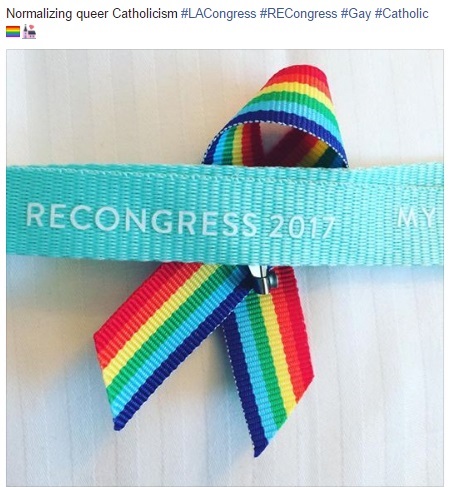
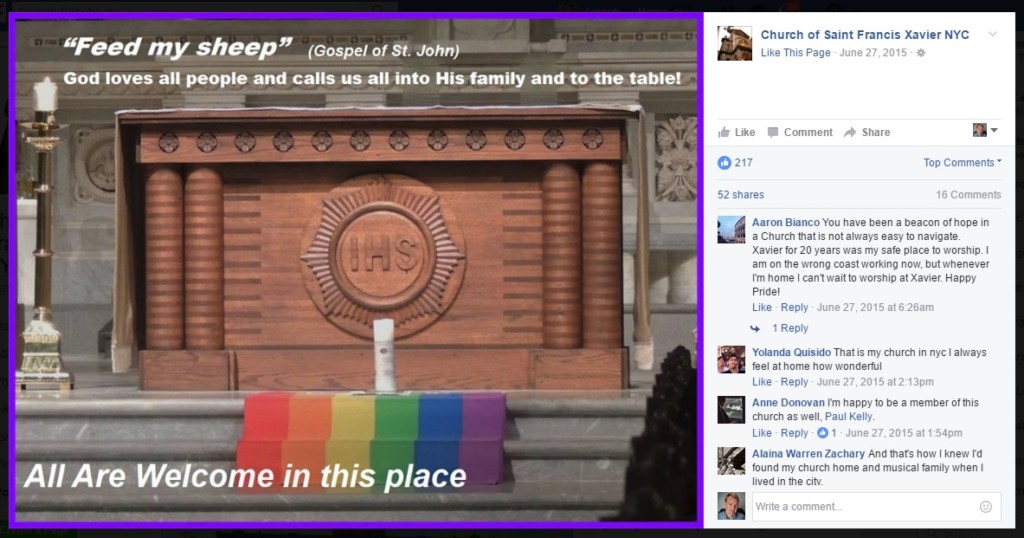
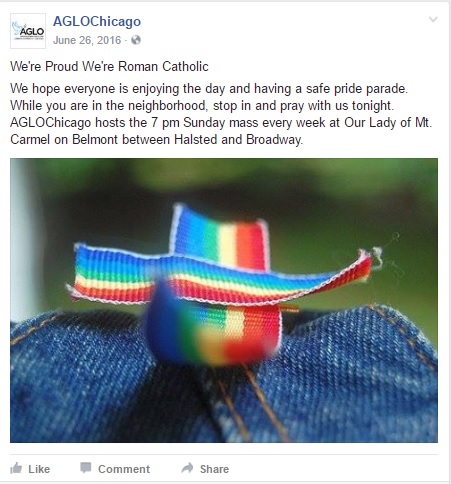
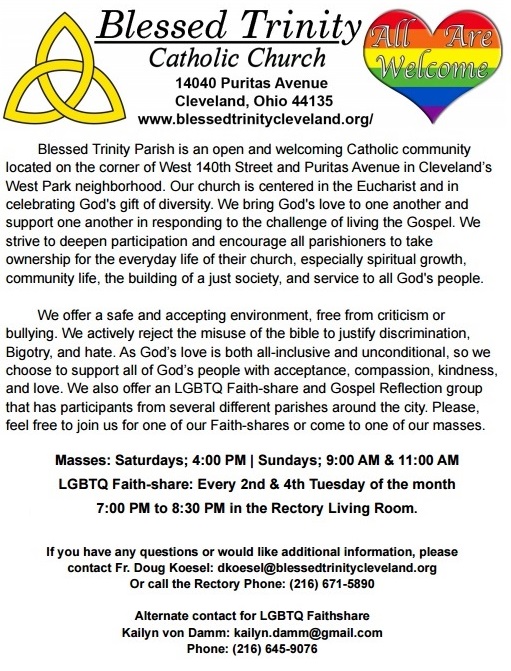
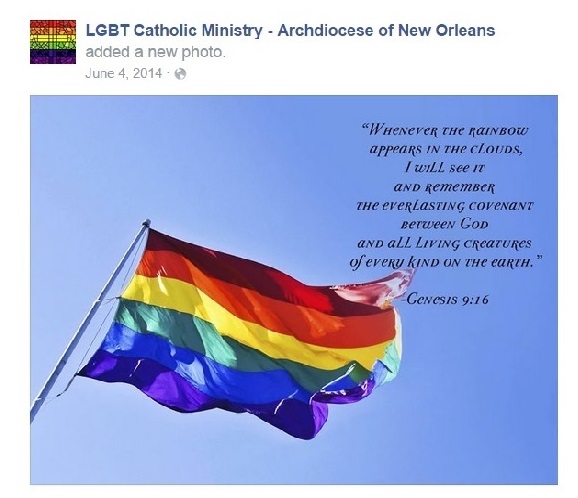
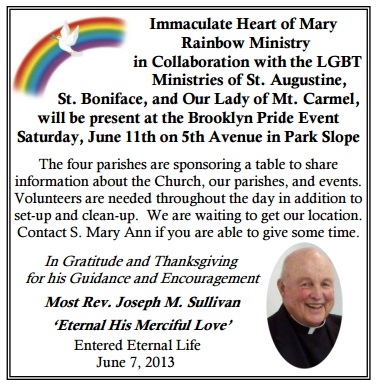
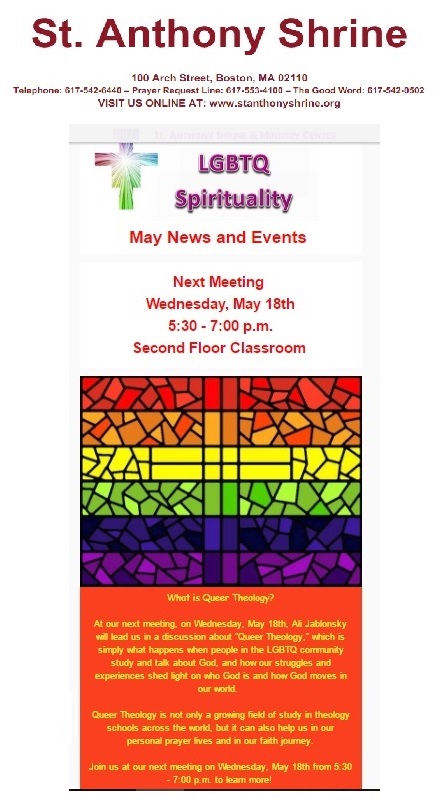


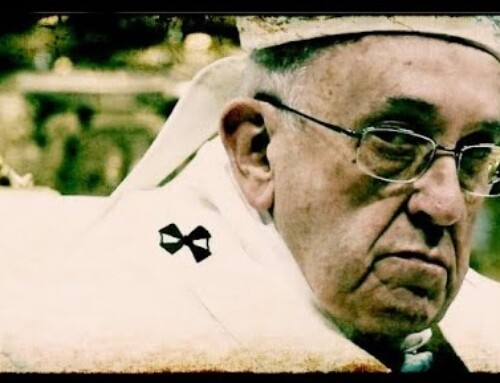
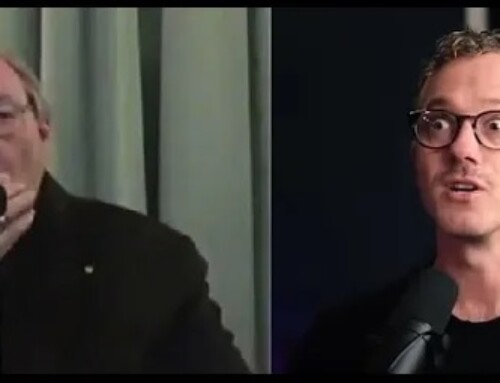
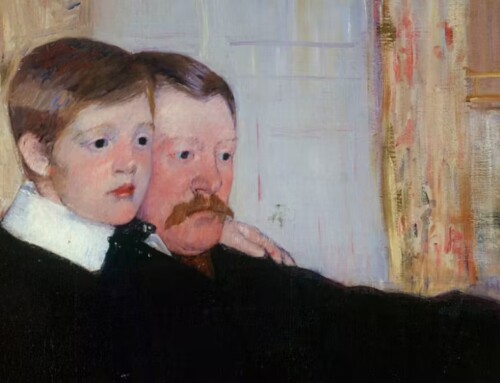
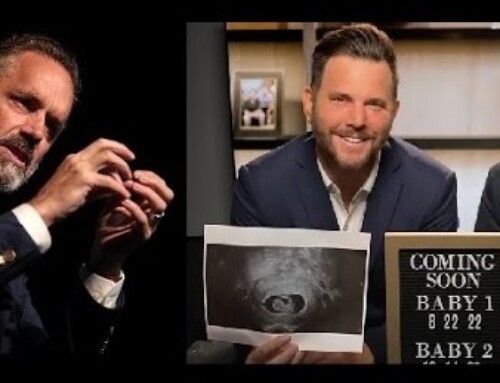
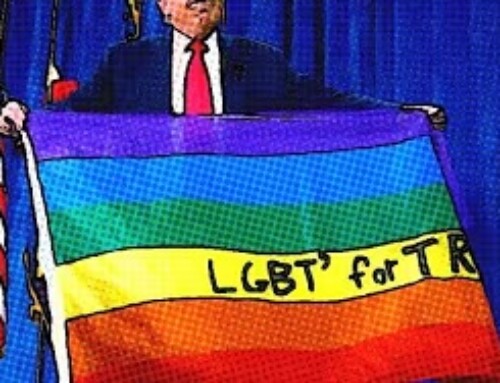
This is a huge problem. There is a straw man that has been created, and the “solution” is to change the Catechism. While I was very disheartened to hear Bishop Barron speak on this issue, I was glad he used the word “If…”, he wasn’t claiming that *is* the experience of all LGBT. I also have hope that he could make changes if he were to be “promoted” to more than an auxiliary bishop, but it seems that he has been fed the lie that “intrinsically disordered” is the message that all LGBT hear from the Church. A lot (if not all) of these problematic ministries and people were in place long before his appointment. Therefore, I think the problem lies in the leadership (long before Barron). Either they are truly ignorant about what the identity and the lifestyle entail, or they have a dog in the fight and are justifying their own behavior or attractions. They haven’t experiences the grace of God to know that we can live up to the high call of chastity. Sad all around, and so much prayer is needed. “Lord, to whom shall we go? You have the words of everlasting life.”
Joseph can I copy this to my blog on Word Press? Holly Harrington
Yes, go right ahead. Blessings.
Just got back to you thank you. Blessing back to you also in your ministry. I pray God is proud of you Joseph. I really do. You make my day understanding this topic I’ve tried to understand for some years since coming back to the church and accepting all her teaching. Thanks for you and others who have experienced this same trial. Amen to all of you.
If I ever get out to Cali I would love to look you up and take you to dinner. Don’t know for sure if in the cards but if the good Lord wills it we will see each other out there maybe. I’m under the weather right now but ok. Trials and tribulations I think but I think the Lord is doing this for a reason I know not. Allowing my setbacks.
God Bless.
Dear Joseph, I have spent the last few days reading your very revealing, troubling, sad and eventually uplifting book. I don’t know how else to describe it. The words ‘for the desolate and confounded still walking the streets I write this book’ brought tears to my eyes and although I am not catholic but a member of another church, I prayed from the depths of my soul especially for you and for all those fallen into homosexuality. My heart goes out to you and I will always especially remember ‘Joseph’ in my prayers. May our Lord and Saviour bless you and comfort you all the days of your life.